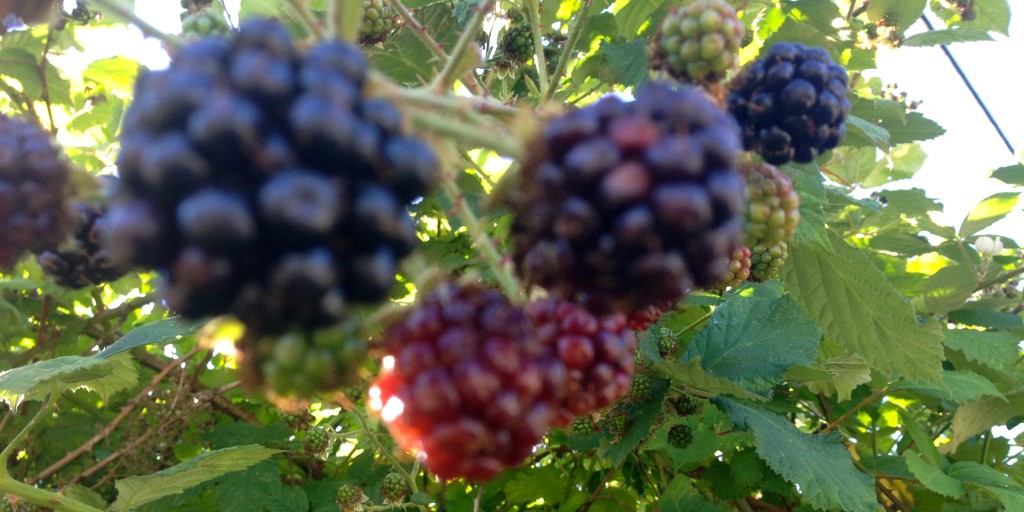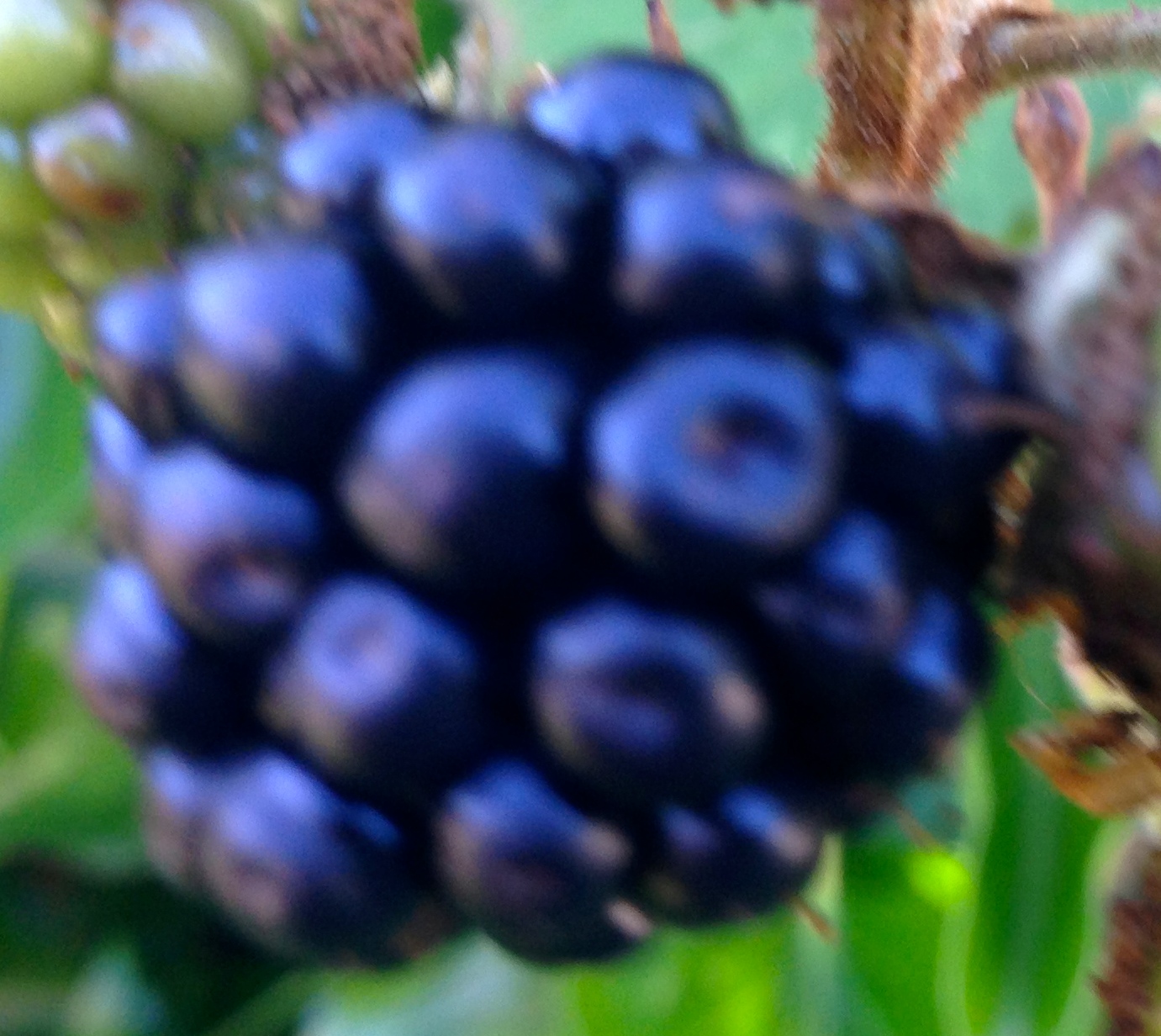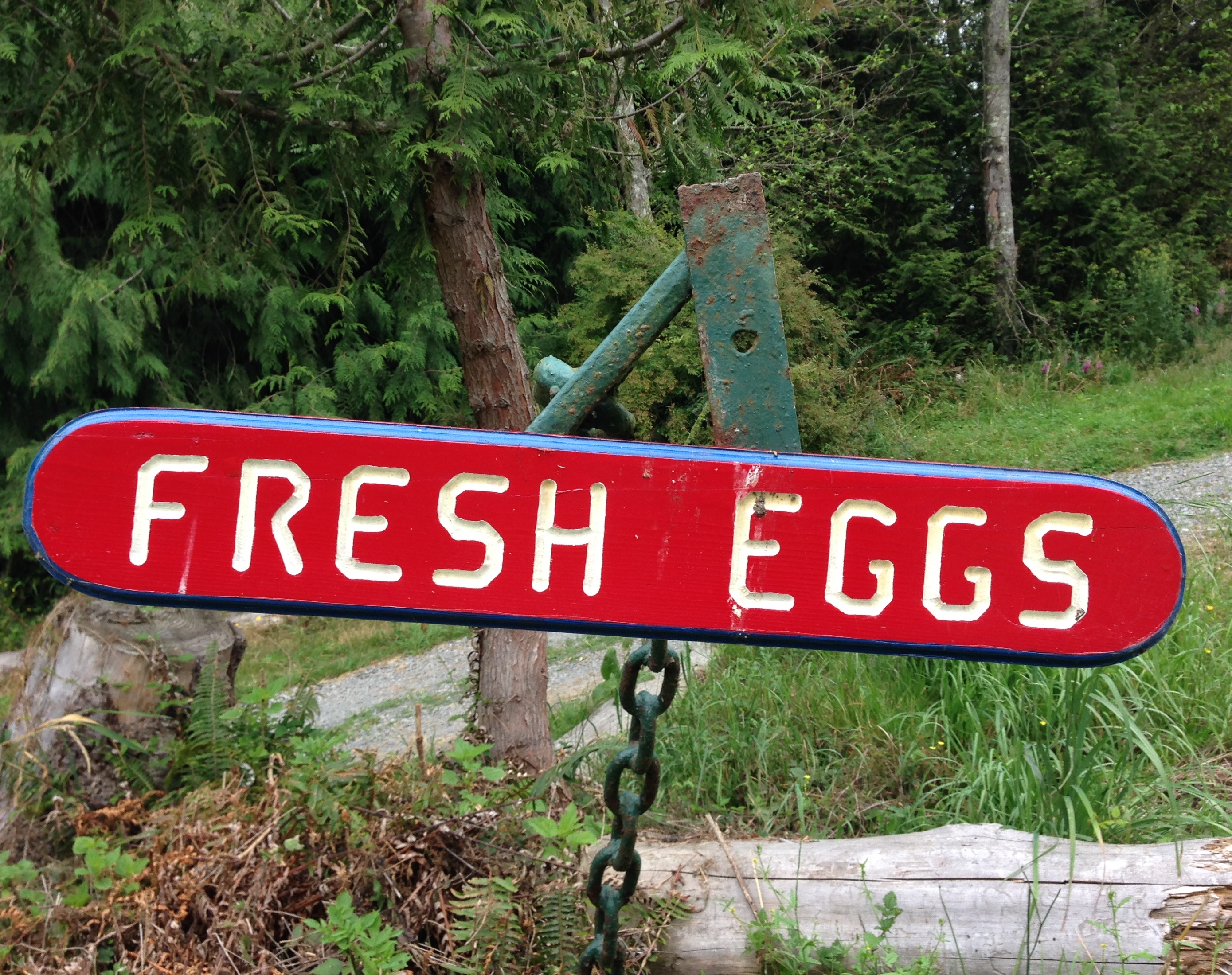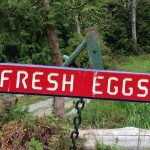 It’s time to celebrate blackberries! It was blackberry season when I arrived on Whidbey Island. A friend showed me a culvert cache in her neighborhood where I picked a plump berry half the size of my thumb and popped it into my mouth: juicy and sweet and warm from the sun. Within a few minutes we filled a recycled plastic container with berries and, after dinner, we ate them on ice cream.
It’s time to celebrate blackberries! It was blackberry season when I arrived on Whidbey Island. A friend showed me a culvert cache in her neighborhood where I picked a plump berry half the size of my thumb and popped it into my mouth: juicy and sweet and warm from the sun. Within a few minutes we filled a recycled plastic container with berries and, after dinner, we ate them on ice cream.
Later, I scattered blackberries over cereal and pancakes and grilled salmon; I baked them in cobblers and muffins; I boiled them down into syrups and jams . . .
These nutritious berries—high in fiber and vitamin C—are a boon to anyone who eats on a budget, and arriving on Whidbey, I considered them a personal welcome gift from the universe, my new universe. On Whidbey blackberries are, really, everywhere: on vacant lots, between driveways, beside the highway, lining neighborhood streets, climbing walls, growing up through the middle of other bushes, hugging not the shoreline perhaps but the thin, sandy soil that’s just one step away. The bushes grow thick and tall; they’re tenacious, wickedly prickly, and absolutely aggressive—a bit like our own weedy species, I think, except that humankind doesn’t come to fruit so easily and predictably between early August and the autumn rains.
As with friends, I found it’s important to pick the right berries, the truly ripe ones. Blackberries come to maturation on individual time frames, meaning that two plump berries growing on the same twig so close together that they touch can be at varying stages of ripeness: one sweetly succulent and the other mouth-puckering. The early warning sign is this: if a berry is ready to be picked, it comes off the bush with just the slightest prompting from the picker.
When a blackberry offers any resistance at all, it’s not ready; move on to another berry. This means you can pick the best berries, the ripest berries, without crushing them. It took me a while to master this light touch, and so the first year my fingertips were stained dark purple throughout the season.
The blackberry’s prickles—often incorrectly called thorns because they are capable of ripping denim and drawing blood—have provided me many other valuable lessons. One of the more obvious is the importance of appropriate attire: old clothes, long sleeves, covered shoes. Because opportunities for berrying can come up unexpectedly, I began carrying the right clothes and some plastic containers in the trunk of my car.
But dressing right isn’t the whole story in dealing with blackberry prickles, and also with the huge spiders that take refuge in those prickles. That’s right: huge spiders. You never want to thrust your hand into a blackberry bush. You need to see beyond the berry the question; you need to take in the berry’s immediate environment. Otherwise you may receive a nasty surprise.
What you cannot help but notice in picking blackberries is that the best berries are just out of your reach. This will be true even if you are tall, as I am, or if you expand your reach, as many do, by bringing along a step-ladder, a long-handled fork (to pull branches down) or a even a plank (to lay across the front of the bush and allow you access to the inner branches). I don’t do any of this because I’ve found that no matter what I do, always, just beyond my fingertips are gigantic berries, tantalizingly fat berries, berries that are heavy with sweet juice.
There is only one solution here: Get over it. That’s life, isn’t it!
And my life is so much sweeter, I’ve found, when I allow myself to be satisfied with the glorious berries that are within my reach.




